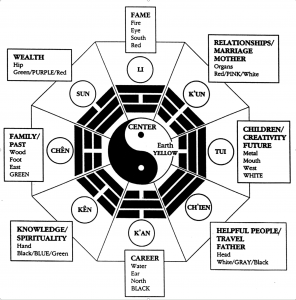Definition of “Dao”
Introduction
The objective of this week’s assignment is to understand the importance and role of definitions to non-technical readers, it is an assignment that asks us to think about jargon from a lay reader’s perspective. The term chosen for this assignment is ‘Dao’, a well-known term in Chinese philosophy. Below are the parenthetical definition, sentence definition as well as expanded definition for this term.
The situation
A Chinese major student is explaining the concept of Dao to a non-technical audience. Although the non-technical audience has heard this term before, the meaning of the term is still obscure.
Parenthetical definition
“Dao” (originated from Chinese philosophy Daoism) is a noun that describes how Taoists (people who believe in this philosophy call themselves Taoist) view the meaning of someone’s life.
Sentence Definition
“Dao” can be interpreted as the “meaning of someone’s life”, or it could be interpreted as “kindness in someone’s heart”, or it could be interpreted as moralism. In Merriam Webster’s dictionary, “Dao” is defined as “ the unconditional and unknowable source and guiding principle of all reality as connived by Taoist” or “the process of nature by which all things change and which is to be followed for a life of harmony” (Merriam-Webster)
Expanded Definition
—How did it develop?
The concept of “Dao” was developed by Taoists. Taoist is a Chinese philosopher Lao Tzu (c.500 BCE), who introduced Taoism. Its literal meaning is ‘The Way, but its connotation is very complicated and hard to define.
—How reality is reflected in “Dao”?
“Dao” describes three levels of reality: self to self, self to others and self to nature. Taoism believes that the ‘self’ is dependent on ‘the other’ and ‘nature. One of the main ideas of Taoism is the belief in balancing forces. When you find your ‘Dao’ or ‘the way, you will feel that your life is balanced.
—Subtle difference between the Western view of Dao and the Chinese view of Dao
According to Emily Mark: “Taoism emphasizes doing what is natural and going with the follow in accordance with the Tao, a cosmic force which follows through all things and binds and releases them” (Mark, 2016). However, this statement by Mark is only one of the beliefs people have for Taoism. When I read Lao Tzu’s book and combined his follower’s writings, I think Taoism is not about not doing anything and letting things be. Rather, it is about accepting all the things (good and bad) along the way. As long as the person is still chasing his or her “Dao”, then his or her behavior should be directed by the “Dao”, rather than the good things or the bad things that come in the way.
—An Example
An abstract term such as “Dao” can be understood with examples. No one will know their “Dao” in the beginning, people will know them after they go through dramatic changes in their lives. For example, when one pursues money and finds that money becomes useless when the people that he/she loves passed away, then he/she realizes what’s more important. As figure 1 indicate, nothing should be overly pursued, when one breaks the balance, either this person will become mad or this person will understand what to give up and what to pursue.

Figure 1. Noah’s Ark. https://www.nouahsark.com/img/religions/what_is_taoism_01.php
References:
Mark, E. (2016). Taoism. https://www.worldhistory.org/Taoism/
Merriam-Webster. (n.d.). Tao. In Merriam-Webster.com dictionary. Retrieved Sept30, 2021, from https://www.merriam-webster.com/dictionary/Tao